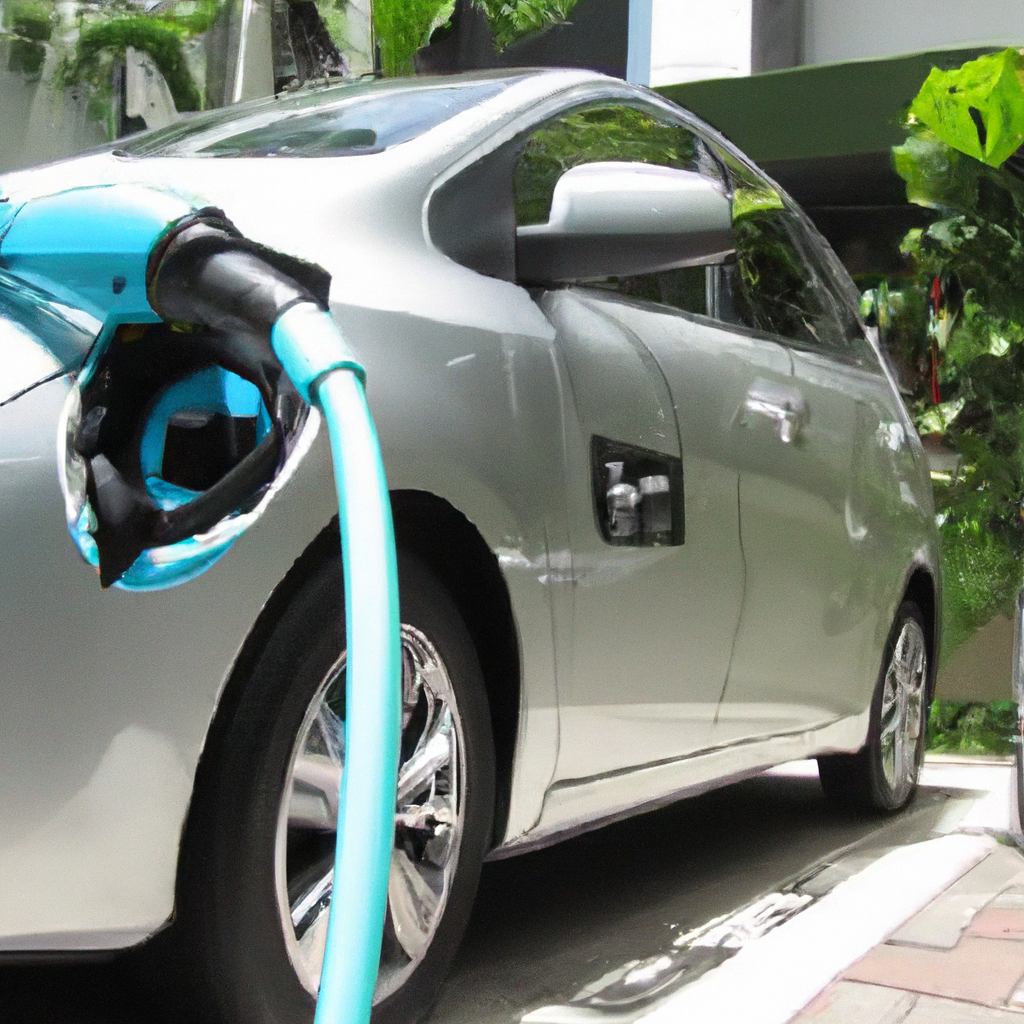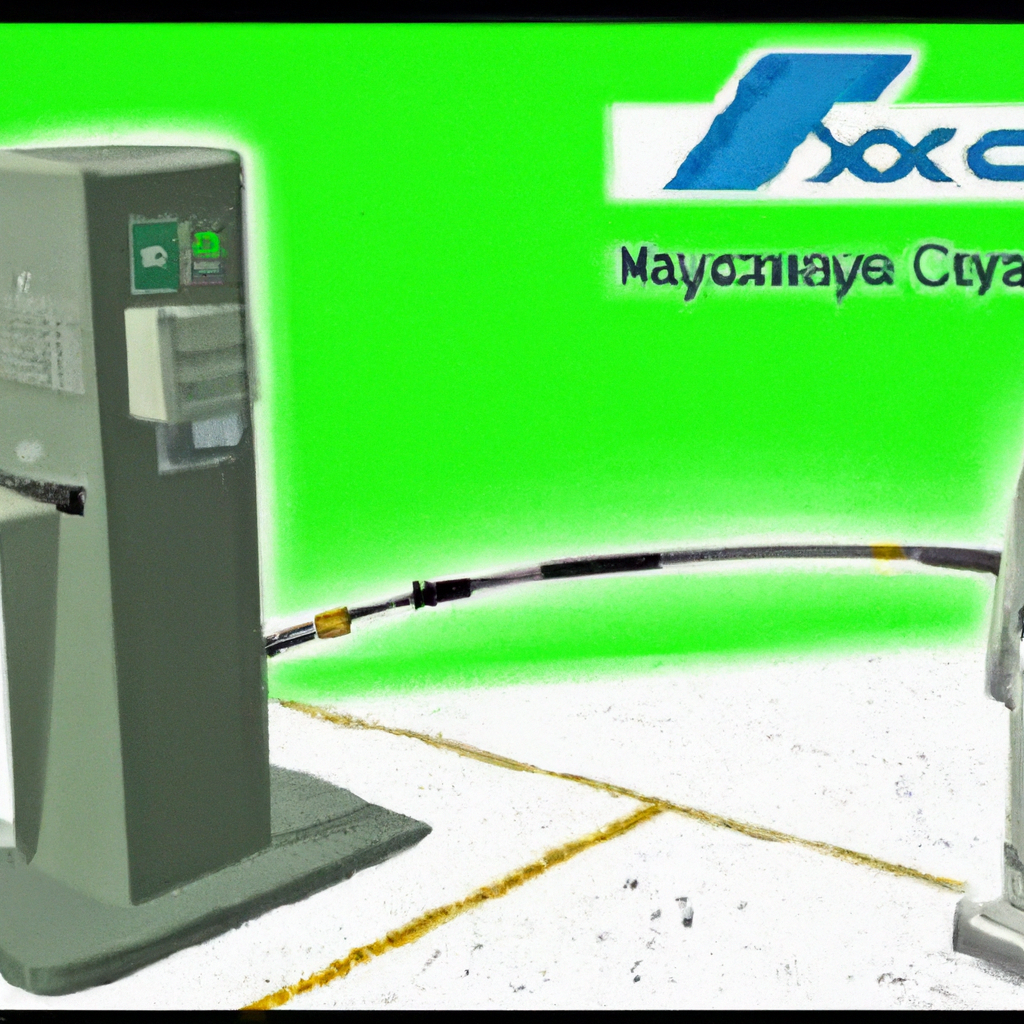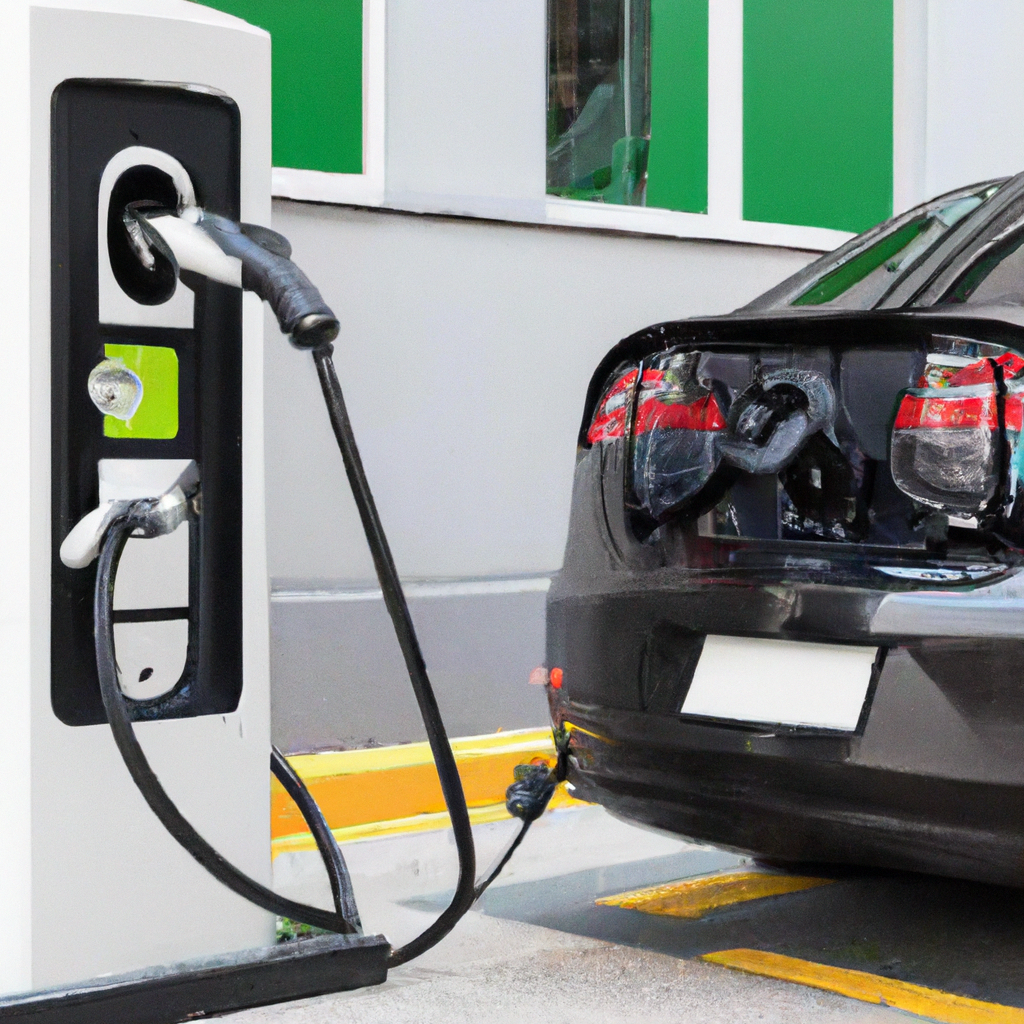How Does The Weather Affect The Charging Speed Of Electric Vehicles In Malaysia?
October 23, 2023 | by Jacob Kang

Imagine cruising down the streets of Malaysia in your sleek electric vehicle, feeling the satisfaction of knowing you’re helping the environment as you drive. But have you ever wondered how the weather in Malaysia can impact the speed at which your electric vehicle charges? From scorching hot days to torrential downpours, the weather plays a significant role in determining just how quickly your car can juice up. In this article, we’ll explore the fascinating relationship between weather and EV charging speed, and uncover some helpful tips for optimizing your charging experience in Malaysia’s ever-changing climate. So, buckle up and get ready to discover the surprising ways that Mother Nature can influence your journey towards a cleaner, greener future.
Factors Affecting Charging Speed

Battery Temperature
The temperature of the battery plays a crucial role in determining the charging speed of electric vehicles. When the battery is too cold, it can significantly reduce its performance and charging efficiency. Similarly, if the battery gets too hot, it can negatively impact its longevity and charging abilities. It is important to maintain the battery temperature within an optimal range to ensure efficient charging and longevity of the battery.
Ambient Temperature
Apart from the battery temperature, the overall ambient temperature also affects the charging efficiency of electric vehicles. Extreme temperatures, whether hot or cold, can reduce the charging speed and efficiency. It is best to charge your electric vehicle in moderate temperatures to ensure optimal charging performance.

Humidity
Humidity can affect the charging system of electric vehicles by causing moisture to accumulate, resulting in the possibility of oxidation and corrosion. Moisture can seep into the charging connectors and affect the electrical conductivity. Therefore, it is essential to take proper precautions to protect the charging equipment from excessive humidity.
Rainfall
Rainfall can pose a challenge to electric vehicle charging, especially if the charging infrastructure is not adequately protected. Water splashes can damage the charging connectors and affect the overall charging process. It is important to implement protective measures to ensure the safety and efficiency of charging stations during rainy weather conditions.

Lightning
During thunderstorms, there is an increased risk of lightning strikes that can cause damage to charging stations. To ensure the safety of both the charging station and the electric vehicle, preventive measures should be in place, such as surge protection and shielding. These measures help mitigate the risk of lightning-related accidents and protect the integrity of the charging equipment.
Air Quality
Poor air quality can affect the charging speed and performance of electric vehicles. Pollution and contaminants in the air can accumulate on the charging connectors and affect their conductivity. Regular maintenance and cleaning of the charging connectors and air filters are crucial to ensure optimal charging efficiency and prevent potential damage to the equipment.
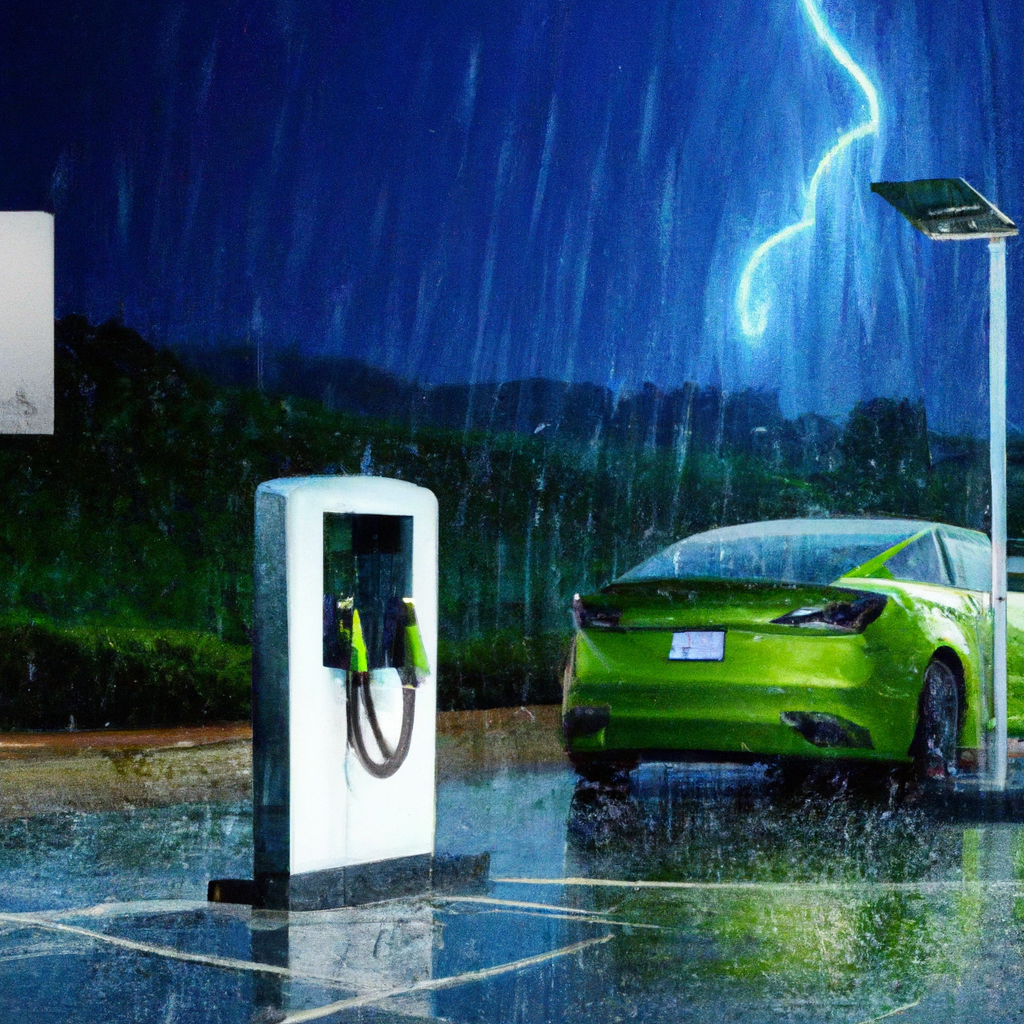
Solar Radiation
Solar panels are often used to power charging stations. However, excessive solar radiation can cause issues such as overheating and reduced charging efficiency. Proper shading and orientation of the solar panels can help mitigate these effects and ensure optimal performance of the charging stations.
Wind Speed
Wind speed can impact the stability of charging stations. Strong winds can cause vibrations and instability, which may pose risks to the charging connectors and cables. Ensuring the stability of charging stations and implementing proper cable management systems can help maintain a safe and efficient charging environment, regardless of the wind conditions.
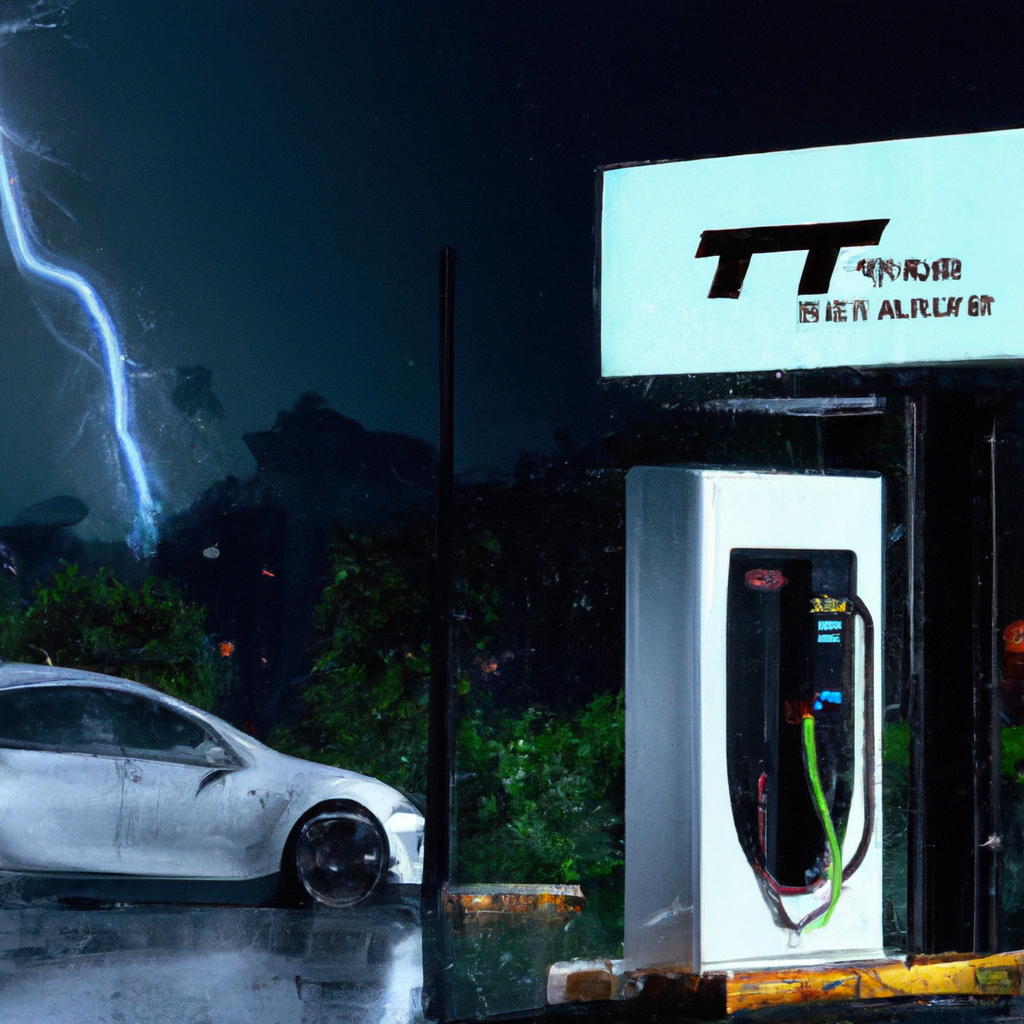
Barometric Pressure
Barometric pressure, which refers to the atmospheric pressure, also has an influence on the charging speed of electric vehicles. However, the specific effects may vary and require further research to establish clear correlations. It is important to consider barometric pressure as one of the potential factors that could impact charging efficiency, especially in areas with significant atmospheric pressure variations.
Seasonal Changes
Seasonal changes in temperature and weather conditions can affect the charging speed and performance of electric vehicles. Extreme temperatures during summer or winter may negatively impact the charging efficiency and overall battery performance. It is essential to monitor and adapt to these seasonal variations to ensure optimal charging capabilities throughout the year.
Throughout Malaysia, the weather plays a significant role in the charging speed of electric vehicles. Factors such as battery temperature, ambient temperature, humidity, rainfall, lightning, air quality, solar radiation, wind speed, barometric pressure, and seasonal changes all contribute to variations in charging efficiency.
To maximize the charging speed of electric vehicles, it is essential to maintain the battery temperature within its optimal range. Extreme cold temperatures can reduce the performance and charging efficiency of the battery, while excessive heat can shorten its lifespan. Monitoring and controlling the battery temperature are crucial for efficient charging.
The ambient temperature also affects the charging efficiency of electric vehicles. Extreme temperatures, whether hot or cold, can negatively impact the charging speed. It is advisable to charge electric vehicles in moderate temperature conditions to ensure optimal charging performance.
Humidity can pose challenges to the charging system of electric vehicles. Moisture accumulation can lead to oxidation and corrosion, which can affect the electrical conductivity of the charging connectors. Precautions should be taken to protect the charging equipment from excessive humidity.
Rainfall can also affect electric vehicle charging, especially if the charging infrastructure is not adequately protected. Water splashes can damage the charging connectors and hinder the charging process. Implementing proper protective measures, such as waterproof enclosures, is crucial to ensure the safety and efficiency of charging stations during rain.
Lightning is a safety concern for charging stations, especially during thunderstorms. Lightning strikes can pose a significant risk to the charging equipment and the electric vehicle. Implementing surge protection systems and providing proper shielding can help mitigate these risks and ensure the safety and integrity of the charging system.
Air quality has an impact on the charging speed and performance of electric vehicles. Pollution and contaminants in the air can accumulate on the charging connectors, affecting their conductivity. Regular maintenance and cleaning of the charging connectors and air filters are essential to optimize charging efficiency and prevent potential damage.
Solar radiation can be both beneficial and detrimental to charging stations. On one hand, solar panels can be used to power charging stations, utilizing renewable energy sources. On the other hand, excessive solar radiation can lead to overheating and reduced charging efficiency. Proper shading and panel orientation can help mitigate these effects and ensure optimal charging performance.
Wind speed can affect the stability of charging stations. Strong winds can cause vibrations and instability, potentially posing risks to the charging connectors and cables. Ensuring the stability of charging stations and implementing proper cable management systems can help maintain a safe and efficient charging environment, regardless of wind conditions.
Barometric pressure, or atmospheric pressure, is another factor that may impact the charging speed and performance of electric vehicles. However, the specific effects and correlations with charging efficiency require further research.
Lastly, seasonal changes in temperature and weather conditions can affect the charging speed of electric vehicles. Extreme temperatures during summer or winter can negatively impact the charging efficiency and overall battery performance. It is crucial to monitor and adapt to these seasonal variations to ensure optimal charging capabilities throughout the year.
In conclusion, the weather in Malaysia has a significant impact on the charging speed of electric vehicles. Factors such as battery temperature, ambient temperature, humidity, rainfall, lightning, air quality, solar radiation, wind speed, barometric pressure, and seasonal changes all play a role in determining the charging efficiency and performance. Understanding and considering these factors will help optimize the charging speed and overall performance of electric vehicles in Malaysia.
RELATED POSTS
View all
